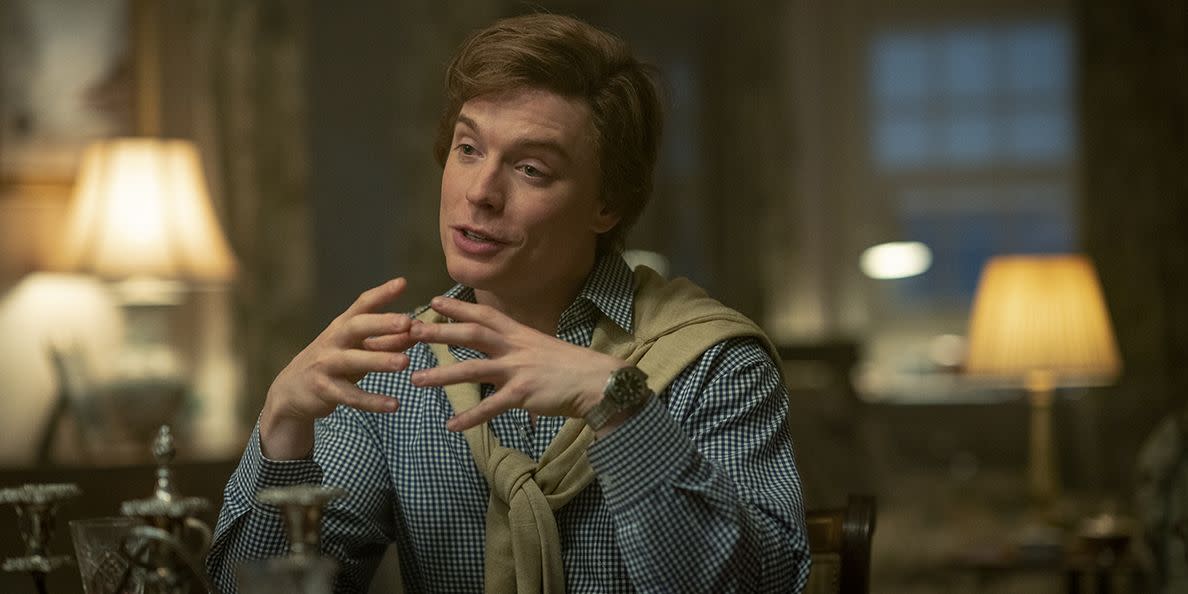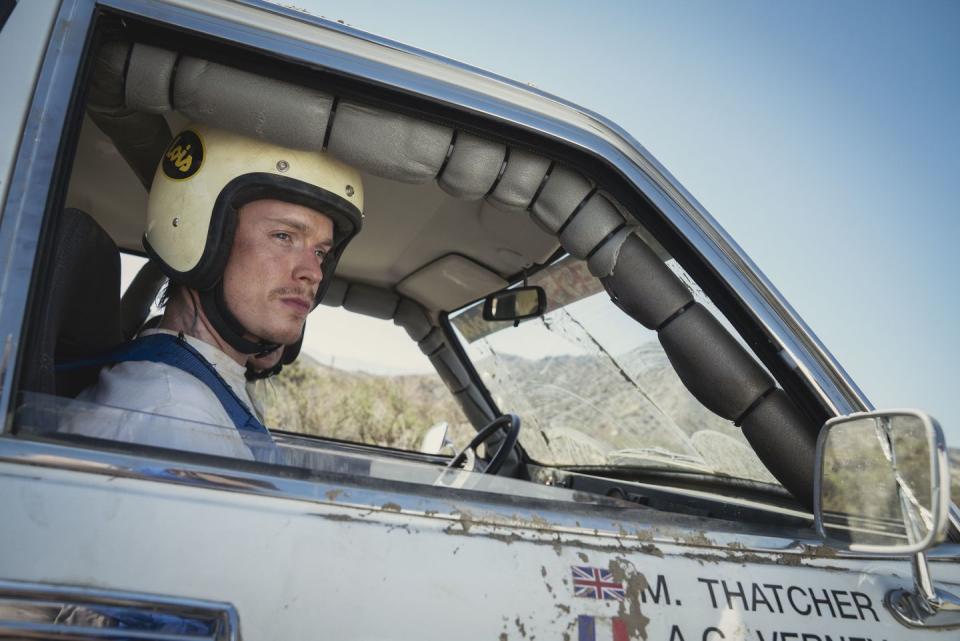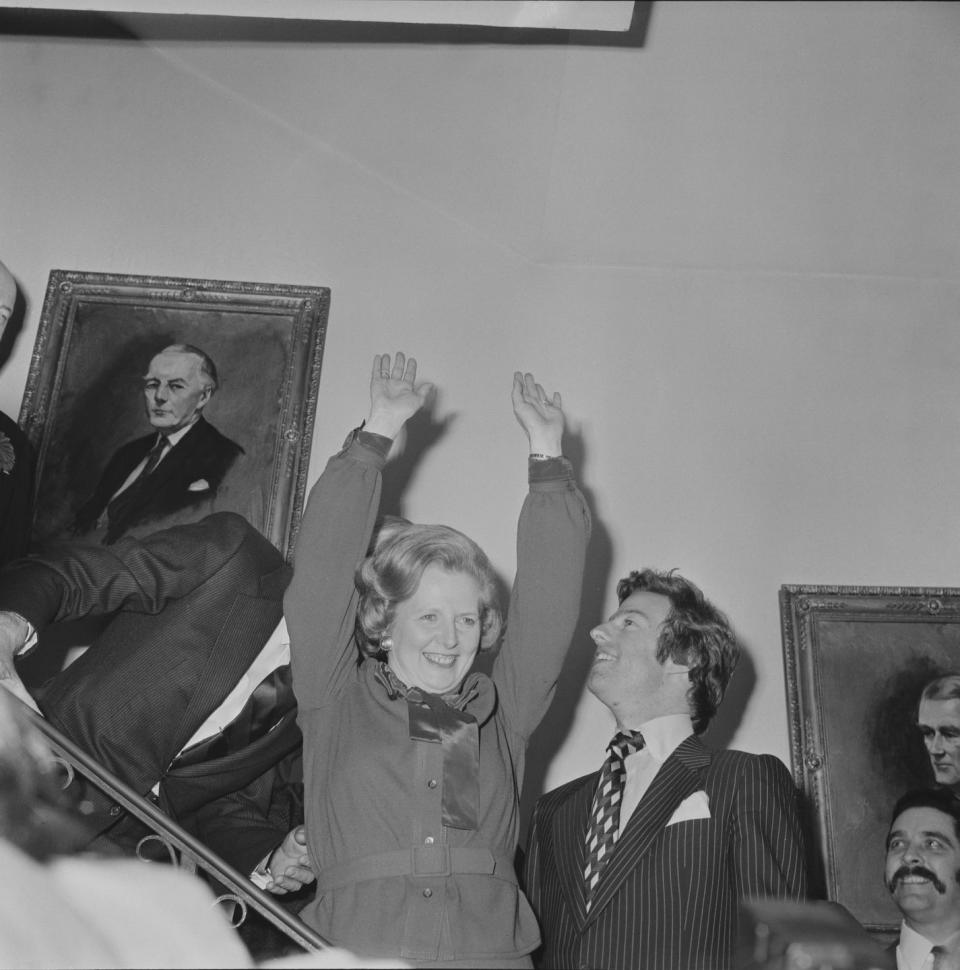What Happened When Margaret Thatcher's Son Mark Went Missing?

- Oops!Something went wrong.Please try again later.
- Oops!Something went wrong.Please try again later.
In January 1982, Mark Thatcher, the son of Prime Minister Margaret Thatcher, went missing for six days after his car went off course during a race in the Sahara Desert. It was a relatively minor incident in terms of the Prime Minister’s closely examined public life—though a personally terrifying one, to be sure—but the episode plays an outsized role in the fourth season of The Crown.
Not only is the drama of a missing child just the kind of thing that keeps viewers glued to their screens, but it also offers a glimpse into Margaret Thatcher’s private world, showing us a softer side of the Iron Lady (played by Gillian Anderson) and shedding unexpected light on how she relates to her colleague, monarch, and sparring partner Queen Elizabeth—herself no stranger to unruly children. Here, actor Freddie Fox (The Great; the upcoming The Pursuit of Love) discusses what made Mark Thatcher an irresistible part and why The Crown has made him more patient with politicians.
What about Mark Thatcher made you want to play him?
The thing that I was really excited by was working with [director] Paul Whittington, who I just worked with on a series called The Murders at White House Farm. We developed a strong connection, and when he said, “I’d like you to come and audition to play this,” I said, “I'd stand in the corner holding a branch for you, Paul.” When I read the script, Peter Morgan’s writing was some of the best I've ever been given the chance to work with. Even in the brief time you have Mark [on screen], we create this wonderful portrait of someone who’s determined and ambitious but also conflicted. He wants to prove who he is but he doubts himself as well. I thought I’d be crazy not to throw my hat in the ring for this part.

Mark’s storyline in the series is brief but powerful. His situation tells us so much about his mother and her approach to life and family—and how she relates to the Queen.
I love that. It's become incredibly zeitgeisty to examine favoritism within family units—look at Prince Andrew and all of that. I think it’s quite apparent that Mark was [Thatcher’s] favorite child. What is not known is whether the Queen has a particular favorite child and whether mothers do in general. It seems to be a very human thing, and one that those two women could silently bond over; I think it's a really brilliant device.
It also makes them human. You can be the Prime Minster or the Queen of England, and you’re still dealing with wayward children or frustrating family moments.
I watched a lot of wonderful documentary footage in researching the part, and some happened to come from the time of Mark’s fateful race. There were scenes that caught Margaret Thatcher on her way into work when she’s just heard about Mark going missing—and it was like she had been hit with a sledgehammer; you never see the Iron Lady like that. It exposed her weak spot.
You mention watching documentary footage, but did you do any other sort of research?
I think you have a sort of duty, whenever you play a real character, to make efforts to acquire understanding of who that person was and what was driving them at the time—even if you're having to channel that through Peter's interpretation. When you're playing somebody real, even if you're not doing a sort of imitation of them, which I was, you still have to try to find out as much as you possibly can, because they existed. In a way, it's the easiest way to work because you don't have to come up with nearly so much, all the little things are given to you by reality.
Do you have any personal memories of the events you’re portraying? This season really starts getting into the modern royal era for the first time.
I was born in 1989 and this series ends in 1990, so I don’t remember anything firsthand. But having just done White House Farm, where I play Jeremy Bamber, who had been convicted of the murder of his entire family in the mid-’80s, I had done a lot of work looking into the period. So, even though the ’80s were before my time, it still doesn’t feel like a period drama to me, it feels real. I might not have any direct memories of the era, but I just about have a handle on it.

Does playing a character who humanizes someone like Thatcher give you a new empathy for politicians or members of the royal family?
The Crown is essentially what Peter imagines went on behind closed doors—but dramatized for the sake of a good story. It’s designed to make you think about the human cost to these people who we hold up as kind of billboards in our lives. I’m not saying I haven’t had sympathy, but doing a series like this does make you think a bit about it. It reminds you how fallible we all are.
Mark Thatcher’s big moment in the series comes when he’s been part of a car race gone awry. Did playing him leave you with any desire to get behind the wheel?
I have a driver’s license, but I haven't actually driven a car since I was 17 years old. So, if I did suddenly develop a passion for rally car driving, I probably wouldn't survive beyond the first afternoon.
You Might Also Like

